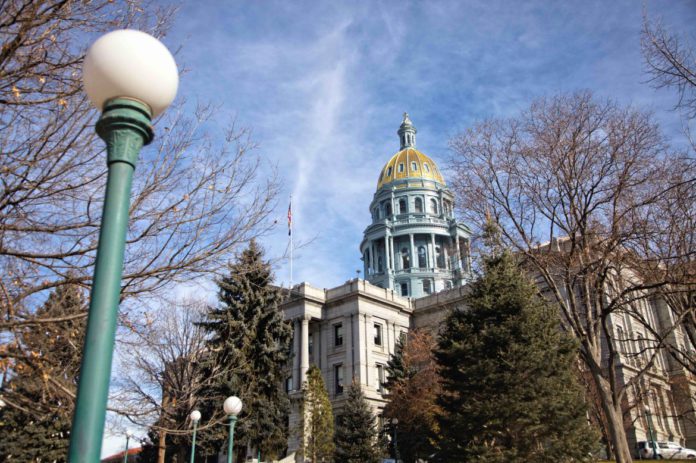

The Colorado House of Representatives on April 1 passed a bill that would update state anti-discrimination laws to prohibit discrimination based on gender expression and gender identity. The changes would apply to protections in employment, housing, public accommodations and other areas governed by the Colorado Anti-Discrimination Act.
HB21-1108 defines “gender expression” as an “individual’s way of reflecting and expressing the individual’s gender to the outside world, typically demonstrated through appearance, dress and behavior.” The bill defines “gender identity” as a person’s “innate sense of [their] own gender, which may or may not correspond with the individual’s sex assigned at birth.”
The bill also changes CADA’s definition of “sexual orientation” to mean a person’s “identity, or another individual’s perception thereof, in relation to the gender or genders to which the individual is sexually or emotionally attracted and the behavior or social affiliation that may result from that attraction.” Currently, “sexual orientation” is defined as a person’s “orientation toward heterosexuality, homosexuality, bisexuality or transgender status or another individual’s perception thereof.”
According to House Majority Leader Daneya Esgar, one of HB21-1108’s prime sponsors, the bill is simply meant to modernize the law, codify existing practice by courts and the Colorado Civil Rights Division and ensure that protections currently extended under “sexual orientation” include a person’s gender expression and gender identity. “House Bill 1108 is a bill that does not expand [or] narrow protections under the existing CADA,” said Esgar, a Democrat from Pueblo, during a March 24 House Judiciary Committee hearing.
“[The bill] recognizes current thinking and practice that an individual’s gender identity and gender expression are actually different than an individual’s sexual orientation,” Esgar said, adding that the change is intended to provide clarity to the courts and employers and “affirms the way the individuals both see and describe themselves today.”
According to Ogborn Mihm partner Clayton Wire, the current language and categories place sexual and gender minorities into “what are, frankly, old-school buckets of protection.” For example, he said, under the current language, protections for transgender people fall under protections for sexual orientation. “Transgender is not a sexual orientation. And it’s just been crammed into this definition of sexual orientation … It’s a misnomer,” said Wire, who testified before the House Judiciary Committee on behalf of the Colorado Plaintiffs Employment Lawyers Association, which is supporting the bill.
Additionally, some people describe their sexuality or gender using terms such as “nonbinary,” “queer” or “genderqueer” that don’t map onto the neat categories currently listed under CADA’s definition of sexual orientation.
“The universe is so much broader than that,” said Iris Halpern, a partner at Rathod Mohamedbhai. “In reality, the world doesn’t necessarily reflect that limited spectrum of identities. You need to think about terminology and lexicon in a way that allows for that flexibility.”
“This is just updating the language to create flexibility that allows for contemporary understandings of gender identity, gender expression [and] sexuality,” Halpern added. “That’s how society is operating, so it’s helpful to have language and laws that reflect that.”
The attorneys noted that gender expression has been protected in practice under Title VII since the U.S. Supreme Court’s 1989 decision in Price Waterhouse v. Hopkins, which prohibited discrimination based on gender stereotyping. More recently, the U.S. Supreme Court’s decision last summer in Bostock v. Clayton County held that Title VII protects employees from discrimination based on sexual orientation or transgender status.
“So now there’s really similar protections under both the Colorado Anti-Discrimination Act and Title VII,” Wire said. “What we really see this bill doing is just keeping those same protections and changing the language around them.”
Although supporters say the bill simply proposes a technical change in language, House Republicans raised concerns about whether it would force people to say or do things that violate their religious beliefs. Republican lawmakers proposed several amendments during a second reading of the bill on Wednesday.
Rep. Terri Carver of El Paso County proposed adding language to the bill’s legislative declaration stating that the act is not intended to impede freedom of religion protections under the First Amendment, which would extend beyond places of worship to places of employment and health care providers. CADA currently has an exemption for religious organizations. Carver also proposed amending the legislative declaration to state that the act is subject to constitutional restrictions protecting free speech. Both amendments were defeated.
During the second reading, House Republicans spoke for nearly three hours about Masterpiece Cakeshop owner Jack Phillips and Shawnee State University professor Nicholas Meriwether, who was disciplined by the university for refusing to use a transgender student’s preferred pronouns. On March 26, the 6th Circuit Court of Appeals ruled that Meriwether’s First Amendment lawsuit against the university can proceed after previously being dismissed by a lower court.
But Halpern said the changes and clarifications in HB21-1108 won’t affect the First Amendment issues in question in the Masterpiece Cakeshop case. “However it was interpreted before [is how] it’s going to be interpreted now,” said Halpern, who also testified in support of the bill before the House Judiciary Committee.
Rep. Brianna Titone, the General Assembly’s first transgender lawmaker, chaired the Committee of the Whole during the second reading on March 31, which was International Transgender Day of Visibility. Titone, a Democrat from Arvada, spoke out to demand respect from her colleagues from across the aisle and criticized their rhetoric and attempts to delay the bill’s progress.
“We’re talking about me with this bill. We’re not talking about these people that don’t exist,” Titone said. “I’m one of your colleagues.”

